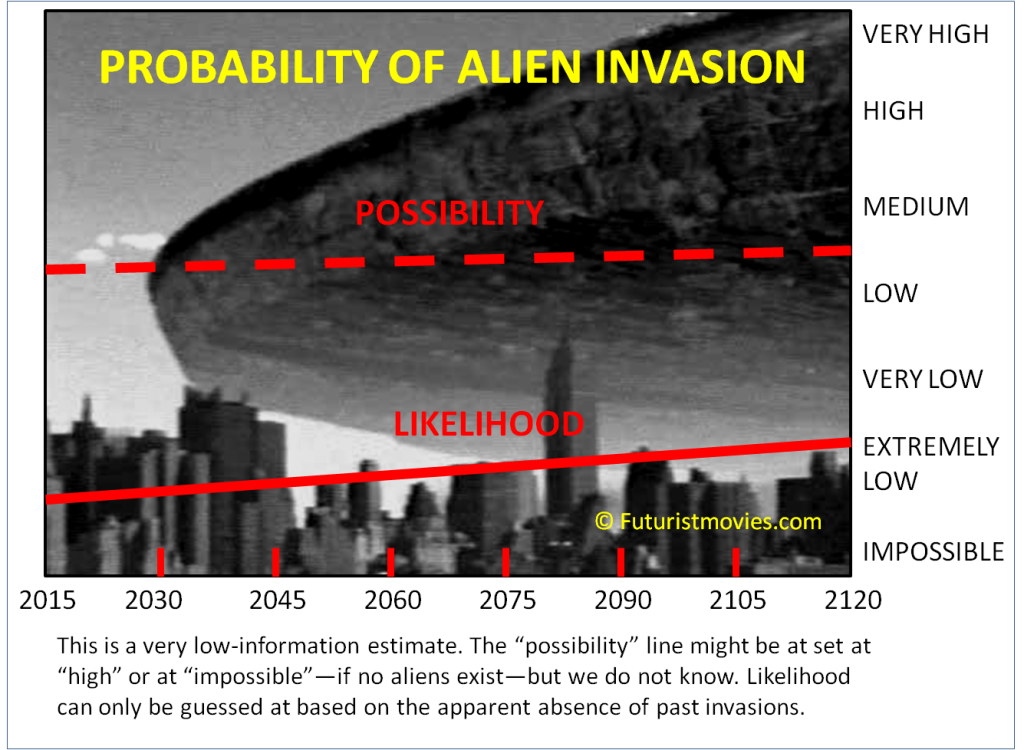 Release date: 2015
Release date: 2015
Setting: 2010s
Ratings:
- Futurism — 5. Potential future issues — the aliens and their motivation, and how people respond to the disaster — are touched on only lightly.
- Plausibility — 4. Aliens might come up with an invasion scheme as intricate as this, but some logic would presumably underlie it.
- Storytelling — 6. More than most scifi movies of young-adult origin, this gets mired in its YA origins.
Alien invasion
Aliens invade the earth in five steps, using electromagnetic pulse, induced tsunamis, and a pandemic. They must have their own reasons for this methodical but inefficient campaign, and the motivations of aliens could indeed by inscrutable to us.
The probability of such an event is impossible to estimate with any precision.

The possibility of alien invasion might be very high, if aliens are monitoring us actively, or it might be zero, if no aliens exist, or if they exist but can’t reach Earth.
Estimations of likelihood benefit from a little data: as far as we can tell, we have not been invaded by aliens for thousands of years, if ever. (We can’t be sure that we were never visited. If aliens invaded two billion years ago and stayed for millions of years, signs of their presence would be sparse or nonexistent in many scenarios. Or if they landed 65 million years ago, hunted dinosaurs to extinction, and then left, we would have no idea, if they didn’t build lasting structures.)
Even if very low, likelihood is increasing over time, as we draw attention to ourselves with broadcasts, send spacecraft further out, and might be viewed as a rising threat.
The movie notes the wishful thinking that advanced aliens will be morally upright by human standards. “What did we do to deserve this?” asks a human. “Nothing — other than occupy a space we need,” the alien replies. The outraged human asserts that people would not “wipe out species.” “Of course you would,” the alien retorts — “You’ve been doing it for centuries.”
 Physicist Stephen Hawking has created a stir by warning that aliens could endanger humanity, and that we should refrain from drawing attention to ourselves.
Physicist Stephen Hawking has created a stir by warning that aliens could endanger humanity, and that we should refrain from drawing attention to ourselves. The review of
The review of  NASA’s orbiting Kepler telescope may soon enable us to spot signs of alien life.
NASA’s orbiting Kepler telescope may soon enable us to spot signs of alien life.